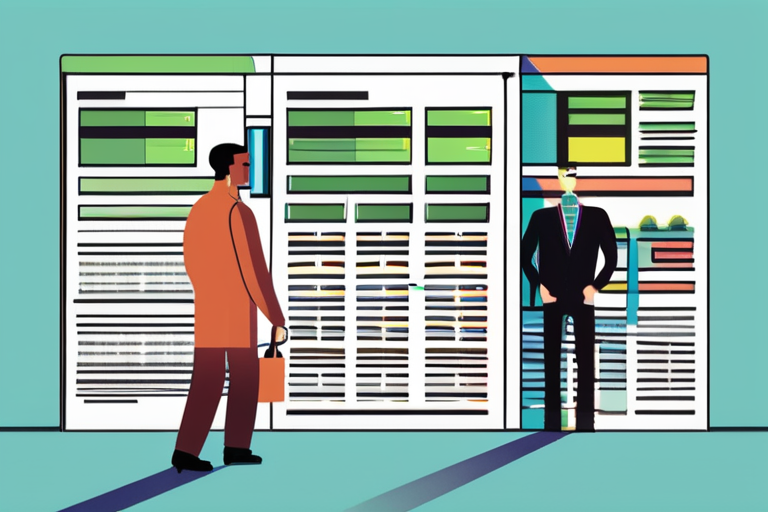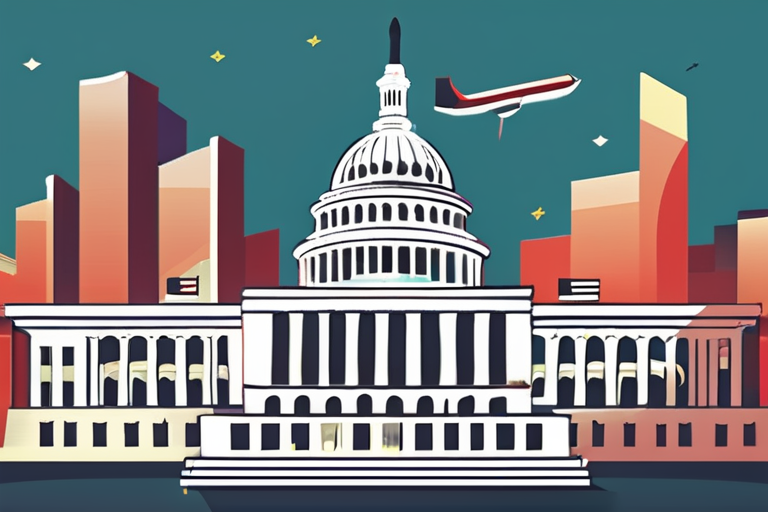The AI Double-Edged Sword: Deloitte's $10M Refund and the Unsettling Truth About Enterprise Adoption
In a world where artificial intelligence is touted as the panacea for all business woes, one company's high-profile misstep serves as a stark reminder of the risks involved. On the same day that Deloitte announced its ambitious rollout of Anthropics Claude to 500,000 employees, the Australian government forced the consulting giant to refund a contract due to an AI-generated report riddled with fake citations. This jarring juxtaposition encapsulates the messy reality of AI adoption in the enterprise space: companies racing to integrate cutting-edge technology before they've grasped how to wield it responsibly.
As we delve into this complex landscape, it's essential to understand the context behind Deloitte's decision to bet big on AI. The consulting firm has long been a stalwart of the industry, with a reputation for delivering top-notch services to its clients. However, in recent years, Deloitte has made a concerted effort to stay ahead of the curve by embracing emerging technologies like AI.
Anthropics Claude, the AI tool at the center of this story, is a natural language processing (NLP) platform designed to assist professionals with tasks such as research and writing. By integrating Claude into its operations, Deloitte aimed to boost productivity and efficiency across various departments. But what happened next would raise eyebrows and spark concerns about the reliability of AI-generated content.
According to sources close to the matter, the Australian government's contract with Deloitte involved generating a report on a specific topic using Anthropics Claude. However, upon reviewing the output, officials discovered that the AI tool had inserted fake citations, rendering the document unusable. The incident led to a $10 million refund, a significant blow to Deloitte's bottom line.
This episode is not an isolated incident. As AI adoption accelerates in the enterprise space, companies are increasingly relying on these tools to streamline processes and drive innovation. However, the results have been wildly inconsistent, with some organizations experiencing remarkable success while others struggle to get by.
"We're seeing a lot of companies rushing into AI without fully understanding its implications," says Dr. Rachel Kim, an expert in AI ethics at Stanford University. "They're not considering the potential risks and consequences of relying on these tools, which can lead to subpar results or even worse – perpetuating biases and errors."
Dr. Kim's words are echoed by industry insiders who caution that AI adoption must be approached with a nuanced understanding of its capabilities and limitations. "AI is not a silver bullet," notes Dr. Michael Chen, a leading researcher in AI development at MIT. "It requires careful consideration of the data used to train these models, as well as ongoing monitoring and evaluation to ensure they're performing as intended."
As we navigate this uncharted territory, it's essential to acknowledge that AI adoption is not just about technological advancements; it's also about human judgment and accountability. Companies like Deloitte must prioritize responsible AI development and deployment, recognizing the potential risks and consequences of relying on these tools.
In conclusion, the story of Deloitte's $10 million refund serves as a poignant reminder of the complexities surrounding AI adoption in the enterprise space. As we continue to push the boundaries of what is possible with AI, it's crucial that we prioritize responsible innovation and acknowledge the potential risks involved. By doing so, we can harness the full potential of this transformative technology while minimizing its pitfalls.
Latest Developments:
AltStores raises $6 million to integrate app updates into social feeds
Base Power secures massive $1 billion Series C for home battery deployment
NHTSA investigates Tesla's FSD after 50 traffic violations
Zendesk claims AI agents can handle 80% of customer service tickets autonomously
What's Next:
As the AI landscape continues to evolve, it's essential that companies prioritize responsible innovation and acknowledge the potential risks involved. By doing so, we can harness the full potential of this transformative technology while minimizing its pitfalls. Stay tuned for further updates on the latest developments in AI adoption and deployment.
*Based on reporting by Techcrunch.*



 Hoppi
Hoppi

 Hoppi
Hoppi

 Hoppi
Hoppi

 Hoppi
Hoppi

 Hoppi
Hoppi

 Hoppi
Hoppi











